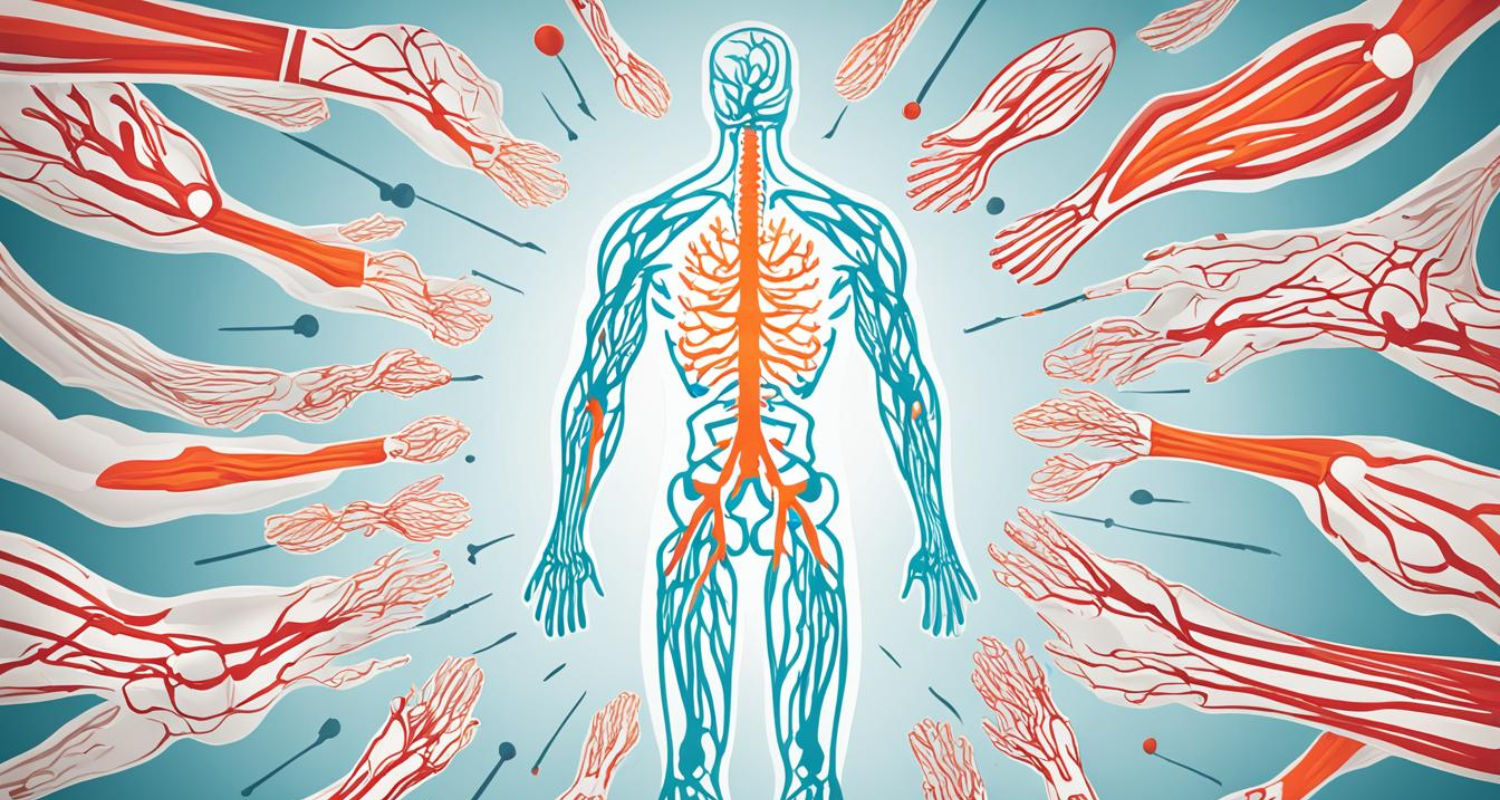8- Torso Tightness

Torso tightness is when the upper body muscles feel tense and hard, especially around the chest and belly. This feeling can vary, from mild to very tight, almost like wearing a band or being squeezed. It limits movements.
This condition makes it hard to bend, reach, or lift things. It also affects how you stand and breathe. You might feel like you can’t fully breathe in or have a shortness of breath. While we don’t fully understand why this happens in MS, it’s likely due to nerve damage and brain-muscle communication issues.
Conclusion

It’s vital to know the early signs of multiple sclerosis. Recognizing these symptoms early can lead to better management. Warning signs include blurred vision, gait abnormalities, fatigue, and trouble with memory, swallowing, and speaking.
By noticing these signs, individuals can get the help they need. Seeing a healthcare provider early is key. This way, they can start the right treatment.
Getting a diagnosis early helps a lot. It means that the condition can be managed better. Keeping an eye on your health is important. Always be ready to talk to your doctor about any changes. This opens the door for support and the best care.
If you spot any of these signs in yourself or a loved one, don’t wait. Talking to a healthcare provider right away is crucial. With fast help and ongoing care, people with multiple sclerosis can still enjoy life. They can also do well in managing their health.
FAQ

Q: What are the early warning signs of multiple sclerosis (MS)?
A: Early signs of multiple sclerosis include problems with vision and needing to go to the bathroom often. Difficulty swallowing, memory issues, and trouble walking may happen too. Fatigue or feeling tired all the time, muscle spasms, and a tight chest can also be signs.
Q: What is blurred vision and how is it related to multiple sclerosis?
A: Blurred vision can be the first sign of MS, affecting one or both eyes. It happens because of nerve inflammation or damage. This can lead to short or long-term vision problems.
Q: What is incontinence of urine and why does it occur in multiple sclerosis?
A: Not being able to control urination is caused by nerve damage in MS. This results in needing to go to the bathroom a lot, or accidentally leaking. The nerves controlling the bladder are affected, causing these issues.
Q: What is dysphagia and how does it relate to multiple sclerosis?
A: If one has trouble swallowing, it may be a sign of MS. This is due to nerve damage that affects the throat muscles. Swallowing, eating, and speaking can become hard.
Q: Why do individuals with multiple sclerosis experience worsening memory?
A: MS can make memory worse. It might be hard to remember things, from mild to severe. This can affect daily life and how well you function.
Q: How are gait abnormalities and imbalance related to multiple sclerosis?
A: Gait issues and imbalance can happen in MS. This is because nerve damage affects walking and balance. It can cause troubles walking, moving, and staying balanced.
Q: Why does fatigue occur in multiple sclerosis?
A: Feeling extremely tired can come with MS. The exact reason for this is not clear. Yet, it’s linked to nervous system problems. This fatigue can really make daily life hard.
Q: What causes muscle spasms and stiffness in multiple sclerosis?
A: MS can make muscles spasm and feel stiff. This is due to nerve damage affecting muscle control. It can be painful and make moving hard.
Q: What is torso tightness and how does it relate to multiple sclerosis?
A: Torso tightness, or the ‘MS hug’, is when your chest or abdomen feels tight. This happens because of muscle spasms or inflammation. It’s a sign something is wrong.
Q: How does multiple sclerosis affect swallowing and speaking?
A: MS damages nerves that help with swallowing and talking. It can cause problems like choking or hard-to-understand speech. This is because muscles for swallowing and talking are affected.
